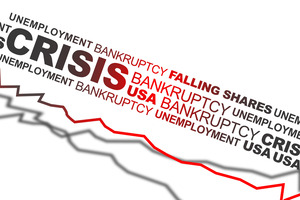When you’ve fallen behind on a debt, creditors have the option of filing for a judgement against you. This means the court will grant the creditor permission to take certain steps to collect their debt.
Essentially, a creditor with a judgement against you has more power and can pursue third-party methods of collection, such as wage garnishment, to collect the money you owe.
The thought of having a judgement against you or receiving notification that a creditor is pursuing a judgement can be frightening. Suddenly, you’ve gone from putting off a debt to having actual legal action taken against you regarding that debt.
And unfortunately, even if the debt was something you tried to pay and your inability to do so was out of your hands, creditors still have the option of getting a judgement.
The good news is there are a few things you can do to stop a judgement. And as is the case with most things, the sooner you take action the better.
Ignoring notification that a creditor is seeking a judgement against you can make your situation a lot worse. If the court date passes without you taking action, the court will automatically grant the judgement – even if the debt is not legitimate – and you’ll be forced to deal with the consequences.
What can you do to avoid a judgement against you?
Arrange a Repayment Plan
One option you have for stopping a judgement against you is to speak to the creditor before they file any court documents.
Start by explaining your situation and asking if you can work out a repayment plan. Ask that any agreement be put in writing and that you also receive paperwork that states the creditor will no longer pursue the judgement against you. If you’re dealing with a legitimate situation, you’ll likely receive a contract concerning the agreement that states no action will be taken as long as you uphold your end of the contract.
Speaking to creditors without any professional experience can be risky because many of them are trying to take advantage of you. However, if you’re facing court-ordered wage garnishment, it’s better to give this option a try.
Dispute the Debt
If you believe the debt is not legitimate, you have the option of fighting it. You should never agree to pay a debt that you are not responsible for paying.
However, if the debt is not legitimate, you’ll still need to go to court to fight it. It’s up to the creditor to prove what you owe, that the statute of limitations has not expired, and that they have the legal authority to collect on the debt.
To fight a creditor’s attempts to gain a judgement against you, you’ll need to respond to the Summons and Complaint by providing an Answer to the court within the appropriate amount of time. Your Answer should include a request for the creditor to prove the validity of the debt. Unless the creditor is able to satisfy these requests and submit them to the court, they will not be granted a judgement.
Some information about filing an Answer is available here, but ideally, you’ll seek legal guidance.
File for Bankruptcy
Your final option to protect yourself against a judgement is to file for bankruptcy. This is the best option if you aren’t able to arrange a repayment plan and the debt is legitimate. Most people consider it a last resort, but depending on your financial circumstances, you could be better off filing before exhausting all of your other options.
To estimate what a bankruptcy might look like for you, feel free to use the bankruptcy calculator below that’s based on bankruptcy forms. The calculator will help estimate your qualification as well as provide a list of pros and cons to compare your options.
If you’re concerned about a judgement against you or you’ve been threatened with wage garnishment or any other drastic collection efforts, we can help. Contact the Law Offices of Robert M. Geller at 813.254.5696 to schedule a free consultation.




























![Signs That You May Need to File Bankruptcy [Infographic]](https://djml3wkzi26ea.cloudfront.net/wp-content/uploads/2021/01/signs-chap7-v-chap13.jpg)
![How To File for Bankruptcy [Infographic]](https://djml3wkzi26ea.cloudfront.net/wp-content/uploads/2020/07/bankruptcy-steps-infographic-web.jpg)










